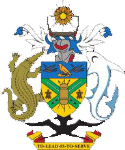The Melanesian Spearhead Group (MSG) was initiated by Heads of Governments of the Melanesian countries – Solomon Islands, Papua New Guinea, Vanuatu, Fiji and New Caledonia, represented by Kanak Socialist National Liberation Front (FLNKS) – in 1986 in response to the recognition of the importance of having common positions and ensuring solidarity when spearheading regional issues. The aim of MSG is to ensure mutual cooperation and dialogue to promote a prosperous and stable region and encourage the growth of each economy.
The MSG Secretariat, based in Port Vila, is responsible for serving the members of the MSG to work towards a progressive and prosperous Melanesia. It provides policy advice, facilitates implementation of decisions, advocates Members’ interests on the regional and international stages, and manages the resources of its members. Further information on the functions and programmes of the Secretariat can be found in the link below.
Trade between countries in Melanesia has been occurring for millennia and represents the lifeblood of the culture and the population it sustains. As natural trading partners for many years, the countries of the MSG recognised the importance of trade for enhancing the prosperity of their economies. The initiation of a trade agreement sought to formalise these trading relationships and guarantee unfettered market access for the populations of each economy.
The original MSG Trade Agreement (MSG TA) was signed in 1993 and governed the three Melanesian States of Vanuatu, Papua New Guinea and Solomon Islands. Fiji signed the agreement in 1998, after joining the MSG the previous year. FLNKS has permanent observer status to the Agreement.
The MSG trades under 3 trade agreements; MSG Trade Agreement, MSG Trade Agreement 2 and MSG Trade Agreement 3. MSG TA covers 180 goods, which are now traded duty free among members. MSG TA2, signed in 2005, establishes a free trade agreement among the Members. Import tariffs are eliminated on all products exported from other Members, with the exception of those items which individual Members have declared excluded, for reasons due to health or the protection of the environment.
In 2017 Solomon Islands will provide duty free access to all but a few exempt products from the MSG Members and in return, products from Solomon Islands will have duty free access to the markets of other MSG Members.
MSG TA3 is intended to consolidate the progress made towards economic integration among the MSG Members, as well as provide a platform for broader and deeper economic integration over time. The draft contains substantive chapters on trade in goods, customs, sanitary and phytosanitary measures (SPS), standards and conformance and dispute settlement, together with supporting institutional arrangements. The MSG TA3 is also considering expanding to include services, investment and labour mobility.
